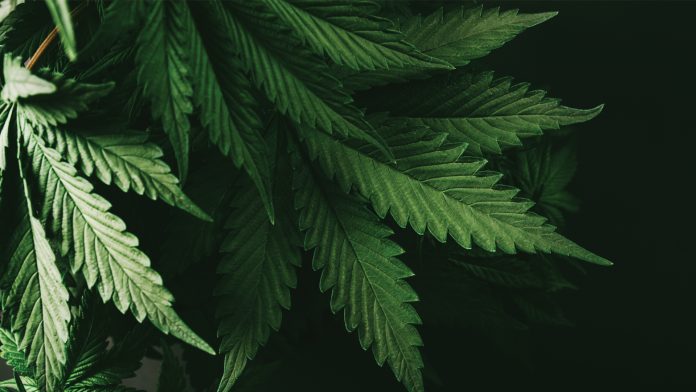
FAAAT think & do tank reflects on the WHO’s landmark call regarding cannabis scheduling and what it means for international law.
In January, Dr Tedros Adhanom Ghebreyesus, the director general of the World Health Organization (WHO), reported the outcomes of the 41st meeting of the WHO Expert Committee on Drug Dependence, which recommended that cannabis and cannabis resin be deleted from Schedule IV of the Single Convention on Narcotic Drugs (1961) and rescheduled under international law. The move of rethinking cannabis scheduling, which effectively undoes WHO’s calls in 1954 for cannabis to be abolished from ‘all legitimate medical practice’, not only recognises the therapeutic benefits of the plant but also opens up potential new avenues for scientific research.
Speaking to Health Europa, FAAAT think & do tank – an international NGO working to make cannabis scheduling and policies evidence-based, transparent, measurable, democratic, socially fair and environmentally sustainable – gives an insight into the landmark decision.
Were you surprised by the outcome of the WHO’s scientific assessment of cannabis-based products and substances, or were you expecting this result regarding cannabis scheduling?
The best possible status of international control is yet to be achieved, but, honestly, the recommendations of the WHO are the best possible outcome that could actually be passed in the current geopolitical context. We have witnessed this process since its early stages, and it is already positive that the organisation went so far. The WHO might have had a narrow margin of manoeuvre, but they took advantage of it as much as they could.
The WHO has not, however, gone far enough in terms of what patients need; nonetheless, its recommendation clearly pushes to increase research and data production and leaves the door open for future incremental changes to be made on the basis of that outcome.
The WHO might have placed cannabis in Schedule I, but it has still recognised that it is less harmful than other drugs in Schedule I, and, as Schedules II and III are not really suitable for herbal material, there were not many possible options left. With this outcome, the WHO has indirectly proposed a long-term reflection about the relevance of having cannabis included in the Schedules of the Treaties at all.
FAAAT think & do tank has described the decision as ‘a clear victory of evidence over politics’. Can you expand on this idea?
Cannabis was placed among the most restrictive Schedules of control of the Treaties (Schedule IV of 1961 Conv.) without any scientific assessment at all. The only assessment WHO made relied entirely on a racist report of the South-African police from 1954 which stated: ‘Not only can there be no abatement in control procedures but there should also be extension of the effort towards the abolition of cannabis from all legitimate medical practice.’
Now, the WHO has gathered independent experts from around the world, balanced in gender, and submitted hundreds of pages of documentation to them. A lot of bias and mistakes hindered the assessment process, and we pointed them out to the WHO and the experts all along the process. It is clear that they fought the best they could, with a limited mandate and funding, to properly assess cannabis and to interact with and learn from civil society inputs (including patients, doctors and researchers). The very fact that this process happened is in itself a victory, and any down-scaling is a victory as well.
A couple of days after the WHO released its outcome, the European Parliament passed a resolution encouraging the availability of cannabis-based medicines. However, this was much narrower as the Parliament defined those medicines as a very limited number of products that have passed conventional regulatory assessment and clinical trials. The WHO, however, has adopted a much broader approach to cannabis and compounding medical products, relying on its internal policy and strategy on traditional and complementary medicines (T&CM), which has a much broader approach – something that is much more suitable for herbal cannabis or its derived herbal preparations. In that sense, it is a clear victory.
For CBD preparations, original work streams were rather to balance a total absence of ∆9-THC in CBD products, or a limitation of 0.15%. Reaching a 0.2% limit is already a good thing, and it exempts fully these products from international Treaty control. Still, this does not refrain from continuing to apply higher limitations for CBD products, as in certain countries (Switzerland, Mexico, etc.).
Also, in countries sticking to this limit, it does not refrain from having products over 0.2% ∆9-THC and even plans a softer subset of Treaty controls (Schedule III) for preparations of cannabis – the final choice on the preparations to be controlled as Schedule III being left to every country.
How do you expect the WHO’s recommendations to alter countries’ policies on cannabis scheduling and legality of medical cannabis?
Impacts will be extremely diverse. Some countries have a national drug list directly based on the Schedules of the Treaties. For those, changes might have a direct impact and apply automatically – probably forcing governments to take regulatory steps to avoid the creation of grey zones. For countries that have specific Schedules in their national law, the WHO’s recommendations will represent an excellent motivation among governments with poor political will for change.
Governments will need to take an official position on the WHO outcome (yes or no, a no being seen as a rejection of evidence and science) in the middle of neighbouring countries in the same situation (some having direct changes in their legislation to handle) and international organisations and agencies refreshing their approach to cannabis and aligning with the WHO’s recognition of the medical usefulness of the plant and its derivatives.
All in all, the WHO’s recommendations have been thought to allow for important flexibilities of countries – there are elements in the WHO’s outcome that could be used by some countries to continue to justify political inertia and the status quo.
Now that the WHO has published its recommendations, what do you hope to see happen next in terms of cannabis scheduling?
For Cannabis: The process is not yet finished, as the United Nations (through its Commission on Narcotic Drugs meeting in Vienna, Austria) needs to vote on it – and before that vote, a lot can still occur. The International Narcotics Control Board’s position on cannabis evolved on 5 March with the publication of its new report, and it is expected that the United Nations Office on Drugs and Crime will also revisit its policy on cannabis, finally.
But what we expect the most is the activation of numerous existing guidelines for herbal medicines and pharmacovigilance, safety, physician training, agricultural or manufacturing practices, but also protection of genetic and cultural diversity linked to herbal medicine, which have been published by different international or multilateral entities and can now be connected to cannabis.
For the Treaties: The assessment of cannabis and its derivatives, in addition to other assessments of new psychoactive substances (designer drugs), synthetic cannabinoids or opioids recently released by the WHO, seriously questions the very system of classification of drugs and the scheduling criteria used, which lack logic and coherence and have remained largely unchanged since 1961. In an era where human rights and evidence bases are recognised as the two missing pillars of the international drug control system, the WHO scheduling assessment process tragically fails in meeting both.
How did FAAAT think & do tank worked to drive forward the WHO assessment process on cannabis scheduling?
As we say, we have served to catalyse the review process and ‘serve as a watchdog to ensure the independence, objectivity and comprehensiveness of the assessment’. We arrived at the conclusion that cannabis scheduling had to change after finding that its placement in Schedule IV had never been scientifically assessed and was 100% reliant on the political will of a few countries (the USA, Egypt, South Africa), and especially after discovering that there was a false belief among international civil servants that a scientific assessment made before World War II by the League of Nations’ health committee justified the current scheduling – a story that we demonstrated was false after finding archives that had been erased from the WHO archives database.
After making evident that this task – a scientific public health benefit-risk balance of the plant – had never been undertaken, neither by the WHO nor by the pre-WWII League of Nations, we reminded the WHO of its obligation to undertake the process and put pressure on it to start.
Once launched, besides the hard task of trying to explain the pharmacological key ‘entourage’ effect that characterises medical cannabis, we worked to ensure that bias was avoided throughout the process (in the form of either biased experts or biased data submitted to the experts).
Kenzi Riboulet Zemouli
Head of Research
Farid Ghehioueche
Head of Advocacy
FAAAT think & do tank
Tweet @FAAATnet
https://faaat.net/
Please note, this article will appear in issue 9 of Health Europa Quarterly, which will be available to read in April 2019.








